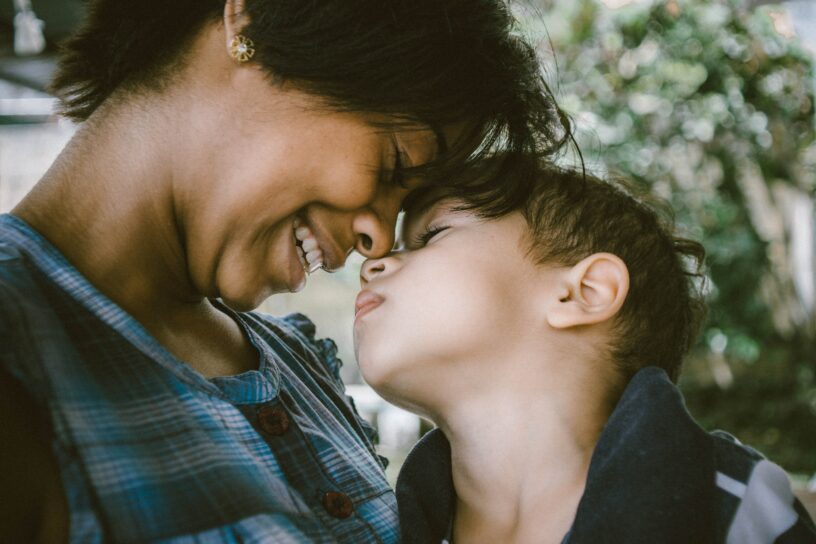
Family photo by Benjamin Manley from Unsplash
The 4 Types of Parenting Styles and What it means for your Child
Parenting is a personal experience, it is shaped by how you were raised, and the values and culture that your parents passed on to you. When I became a mum, I never knew anything about parenting styles, I never understood that there was so much I had to unlearn yet there was still a lot I was happy to pass on though with a lot of sieving done.
Based on the work of developmental psychologist Diana Baumrind and Stanford academics Eleanor Maccoby and John Martin, the four primary parenting philosophies utilised in child psychology today are permissive, authoritative, neglectful, and authoritarian.
I wish there was a manual that our kids came with, a little handbook that would say what to do, when to do it and so on, but there’s none, so the only question is, what kind of parenting style are you implementing and how does it affect your child?
1. The Permissive Parent

Photo by Guillaume de Germain from Unsplash
A parenting approach known as permissive parenting is characterised by low demands and strong responsiveness. While generally being very caring, permissive parents set few limits and boundaries. These parents frequently behave more like friends than they do like parents and do not demand adult behaviour from their kids.
Permissive parents are extremely loose and hardly ever set or enforce any kind of rules or structure, which makes them the complete antithesis of the so-called “helicopter parents,” who constantly watch over their kids’ every move. While they are typically warm and caring, they rarely attempt to control or discipline their children. Their philosophy is frequently the simple statement that “kids will be kids.”
According to Baumrind, permissive parents “allow extensive self-regulation, are unconventional and tolerant, are more receptive than they are demanding, and avoid confrontation.”
What are the effects of this type of parenting?
Permissive parents are known to embrace an overly lenient parenting style, which has been linked to a range of detrimental effects, according to research. Children that have permissive parents typically lack self-control, have poor social skills, are likely to be self-centred and demanding, and may experience insecurity as a result of the absence of limits and rules.
How do you change permissive parenting?
Kids need rules in order to thrive they need to understand that a structure is there to guide them. Create a number of rules for your child/ren and let them know what you expect from them and the consequences that they’ll have to face if they do not do what is expected of them.
If you notice any of these signs in your own parenting, it pays to consciously try to adopt a more authoritative approach. Permissive parenting can result in a variety of issues.
Consider ways to explain your expectations and regulations to your children if you are more of a lenient parent, and be consistent in how you enforce these rules. You can make sure that your children develop the skills they need to succeed in life by giving them the appropriate amount of structure and support as they grow up.
2. The Authoritative Parent

Photo by Caroline Hernandez from Unsplash
Authoritative parenting is characterised by appropriate demands and strong attentiveness. While authoritarian parents may have high expectations for their children, they also provide their children with the tools and encouragement they need to achieve.
In addition to setting boundaries and exercising fair punishment, parents who adopt this style of parenting show their children love and affection. Instead of using tactics like negative reinforcement, this parenting style stays away from threats and punishment.
The authoritative parenting style has traditionally been considered to be the most effective and beneficial for a child; however, research now indicates that parents should deploy parenting strategies in a flexible manner based on their own objectives and each child’s particular characteristics.
What are the effects of this type of parenting?
Parents who are authoritative serve as examples and model the behaviours they want their kids to exhibit. Because of this, it is more likely that their children will adopt and display these tendencies. Children can know what to expect thanks to consistent rules and punishment. The emotional understanding and self-control of these parents are frequently excellent. Additionally, their children pick up the skills of emotion control and empathy.
Independent behaviour is also encouraged by authoritative parents. Children who are given this freedom learn that they can do tasks on their own, which helps to develop strong self-esteem and self-confidence.
Compared to authoritarian or permissive parents, some parents are just more authoritative by nature. Even though it is not your natural default, this does not prevent you from using a more authoritative style. You may need to practise self-control while working to establish the habits of an authoritative parenting style if you’re trying to modify your parenting approach.
How do you become an authoritative parent?
There are certain things you may do that might help if you want to become a parent who is more in charge. This parenting approach can be seen as a compromise between emotional control, discipline, and promoting independence.
You can start by allowing your child to make more decisions, but you should also often talk to your child about those decisions. This parenting style will feel more natural over time with patience, focus, and flexibility to your child’s demands.
3. Neglectful parenting

Photo by Ksenia Makagonova from Unsplash
This parenting approach, which is often referred to as detached parenting, is characterized by a general air of disinterest. Negligent parents rarely enforce regulations and spend little time with their kids. As they frequently struggle with their own problems, they might also be perceived as being cold and heartless, however, this is not always the case.
What are the effects of neglectful parenting?
According to research, the uninvolved parenting style is the one that has the greatest chance of harming kids. While many kids raised by uninvolved parents grow up to be independent, they frequently do so out of necessity and as a method of surviving. According to studies, children who experience this parenting style may have trouble controlling their emotions, fail to establish good emotional coping mechanisms, and experience difficulties in school and in their social lives.
These challenges can last well into adolescence and beyond. Studies show, for instance, that children brought up in this manner are more likely to commit crimes including theft, vandalism, rape, and assault. They have a higher likelihood of abusing alcohol and smoking cigarettes. Furthermore, they are more likely to struggle with low self-esteem, higher rates of depression, and more behavioural problems.
So, then what would be next if this is you?
You can be experiencing strong, complicated emotions if you are struggling with the fact that you were raised by disengaged parents or if you are worried that you are raising your own child in this manner. That makes total sense and is usual. Try to remember that despite the fact that detached parenting is a bad parenting approach, many individuals still use it since it’s all they’ve ever known. This isn’t to say that they mean it maliciously.
Keep in mind that help is available. As you explore your emotions, think about talking to a therapist or counsellor. Consider asking the paediatrician of your child for advice and assistance if you have any concerns about raising your own child in a healthy manner.
4. The Authoritarian Parent

Photo by Some Tale from Unsplash
Parenting that is authoritarian is characterised by high demands and slow responses. Diana Baumrind, a developmental psychologist, listed it as one of the parenting approaches. While having very high expectations for their kids, parents who choose an authoritarian parenting style offer very little in the way of encouragement or nurturing. Mistakes are frequently severely punished. It’s common for feedback to be unfavourable. In the authoritarian style, yelling and physical punishment are often frequent.
What are the effects of authoritarian parenting?
Children raised in this manner are often very good at adhering to regulations since authoritarian parents demand complete obedience. However, they might not have self-control. Children raised by authoritarian parents are not given the same opportunities for independent thought and exploration as children raised by authoritative parents, and as a result, they never really learn how to define their own boundaries and standards. When a parent or other authority figure is not present to supervise behaviour, this lack of self-control might ultimately result in issues.
Although most developmental specialists agree that it’s essential for kids to have rules and boundaries, many also think that authoritarian parenting is excessively harsh and doesn’t provide kids with the warmth, unconditional love, and caring they also require.
How do you avoid authoritarian parenting?
High standards for children and a lack of parental input and responsiveness are characteristics of authoritarian parenting. Parents who have strict restrictions and strong punishments for mistakes don’t always explain them to their children. There are ways to adopt a more positive parenting approach despite the fact that this parenting style is linked to a number of adverse outcomes for kids, including reduced self-esteem, social issues, and poor self-control.
When utilised excessively as a parenting style, an authoritarian approach might backfire. It may work well in instances where rigorous commitment to the rules is necessary. If you realise that your parenting tends to be more authoritarian, you might want to start thinking about how you can start bringing more authority into your daily interactions with your kids.
There are a number of parenting style quizzes you can take online if you’re unsure of what your style is. If you happened to read this article and had a scary lightbulb moment that made you realize you could be a bit of every style or maybe you’re like me where you realized that you’re in between authoritarian and authoritative. Don’t blame yourself for who you are now, it is important to take note of why you’re the way you are.
As for me, I’ve discovered that because I grew up in a household where punishment was the only way to get a point across, I knew how to follow rules but to an extent, I loathed anyone or anything who made me feel misunderstood or wanted to punish me. Now that I have a son, my biggest challenge is learning to shut down the need to punish and actually understand him while also setting clear boundaries for him. Parenting is not easy, but most importantly keep trying.
Planning a trip to Paris ? Get ready !
These are Amazon’s best-selling travel products that you may need for coming to Paris.
Bookstore
- The best travel book : Rick Steves – Paris 2023 – Learn more here
- Fodor’s Paris 2024 – Learn more here
Travel Gear
- Venture Pal Lightweight Backpack – Learn more here
- Samsonite Winfield 2 28″ Luggage – Learn more here
- Swig Savvy’s Stainless Steel Insulated Water Bottle – Learn more here
Check Amazon’s best-seller list for the most popular travel accessories. We sometimes read this list just to find out what new travel products people are buying.










